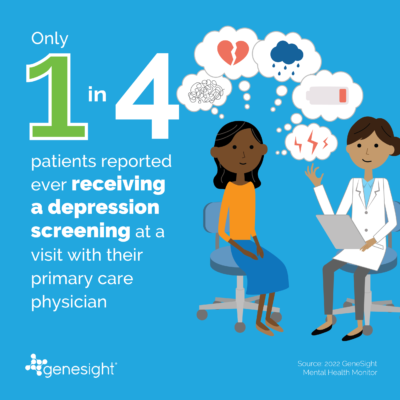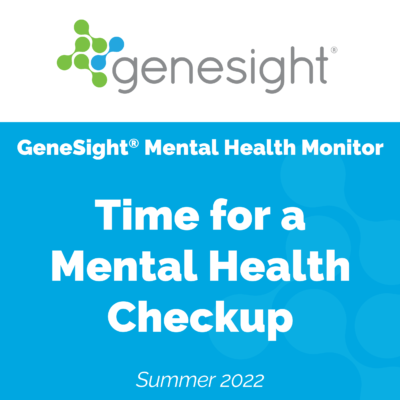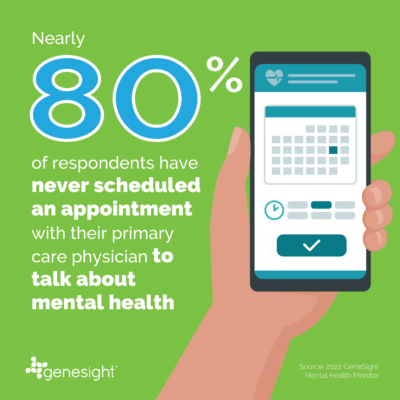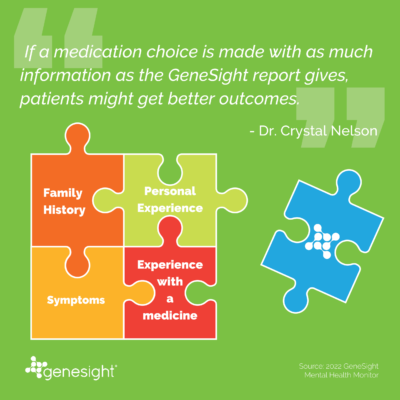
Only one in four respondents reported ever receiving a depression screening at a visit with their primary care provider.
“Screening for depression is important because untreated depression can impact your willingness to engage with the world, your self-worth and your relationships,” said Robin Miller, MD, MHS, internist and owner of Triune Integrative Medicine in Medford, Oregon. “Depression screening improves our ability to diagnose and treat our patients, and it saves time for the clinician, the patient and for other providers.”
Depression screenings can come in many forms, as there is not a diagnostic test to determine if you have depression. A clinician can verbally ask a patient how they are feeling and if they are experiencing any symptoms that may point to depression.
They may also administer a depression rating scale, like the PHQ-2 or PHQ-9. These scales ask about a variety of depression symptoms and ask about how often these symptoms are experienced. Calculating the totals can provide your clinician with information about how severe your depression may be, and it may help facilitate a potential diagnosis.
When is National Depression Screening Day?
National Depression Screening Day is October 6, a timely reminder of the importance of screening.
Like with other illnesses, depression screening should be a part of a patient’s overall healthcare, and patients should consider asking for one during their annual physical (if their clinician does not offer it).
Mental Health America (MHA) has an online screening tool it developed so that people who suspect they may be suffering from symptoms of depression can take it, and it may help them determine if they would like to seek professional help. It cautions that its online tool is “not a professional diagnosis. Screenings point out the presence or absence of depressive symptoms and provide a referral for further evaluation if needed.”

- “A persistent sad, anxious or ‘empty’ mood
- Sleeping too little, early morning awakening, or sleeping too much
- Reduced appetite and weight loss, or increased appetite and weight gain
- Loss of interest or pleasure in activities once enjoyed
- Restlessness or irritability
- Difficulty concentrating, remembering or making decisions
- Fatigue or loss of energy
- Thoughts of death or suicide”
Depression scales can be helpful in many ways, and self-administered depression screening may be an effective first-step tool helping healthcare providers in their patient evaluations.
Primary care is important for mental healthcare
“Family physicians are well-equipped to provide mental health services and are one of the primary sources for mental health care in the U.S.,” according to the American Academy of Family Physicians (AAFP) website. “While psychiatric and other mental health professionals can play an important role in the provision of high-quality mental health care services, primary care physicians are the main providers for the majority of patients. Most people with poor mental health will be diagnosed and treated in the primary care setting. Mental illness also complicates other medical conditions, making them more challenging and more expensive to manage. Together, this makes mental health an important issue for primary care physicians.”
Dr. Miller agrees: “Depression is one of the leading comorbidities of serious physical health conditions such as diabetes, heart disease and others. It can be difficult to treat these kinds of chronic diseases without also addressing depression.”

It may also explain, at least in part, why 79% of respondents have never scheduled an appointment with their primary care provider to talk about mental health.
These results echo a 2021 GeneSight Mental Health Monitor, which found that about two out of three respondents said annual doctor visits are one of the best ways to take care of physical health, but only about one out of three said that approach was good for mental health.
Nearly half of respondents in the 2021 survey (46%) said primary care physicians would be the first healthcare provider they would talk to about their mental health concerns, while 29% said they would talk to a therapist/counselor first.
Depression treatment in primary care
In the Fall 2022 GeneSight Mental Health Monitor, when asked what information their PCP used when choosing a medication to treat their depression or anxiety, patients said:
- Symptoms – 82%
- Clinician’s experience with a particular medication – 52%
- Personal history – 49%
- Family history – 28%

“For a primary care doctor… to do a GeneSight test really would cut down on some of the referrals I even get from the start,” said Dr. Crystal Nelson, a psychiatrist in Newnan, Ga. “If a medication choice is made with as much information as the GeneSight report gives, patients might get better outcomes.”
For more information about this topic, please visit:
Our articles are for informational purposes only and are reviewed by our Medical Information team, which includes PharmDs, MDs, and PhDs. Do not make any changes to your current medications or dosing without consulting your healthcare provider.
The GeneSight test must be ordered by and used only in consultation with a healthcare provider who can prescribe medications. As with all genetic tests, the GeneSight test results have limitations and do not constitute medical advice. The test results are designed to be just one part of a larger, complete patient assessment, which would include proper diagnosis and consideration of your medical history, other medications you may be taking, your family history, and other factors.
If you are a healthcare provider and interested in learning more about the GeneSight test, please contact us at 855.891.9415. If you are a patient, please talk with your doctor to see if the GeneSight test may be helpful.




